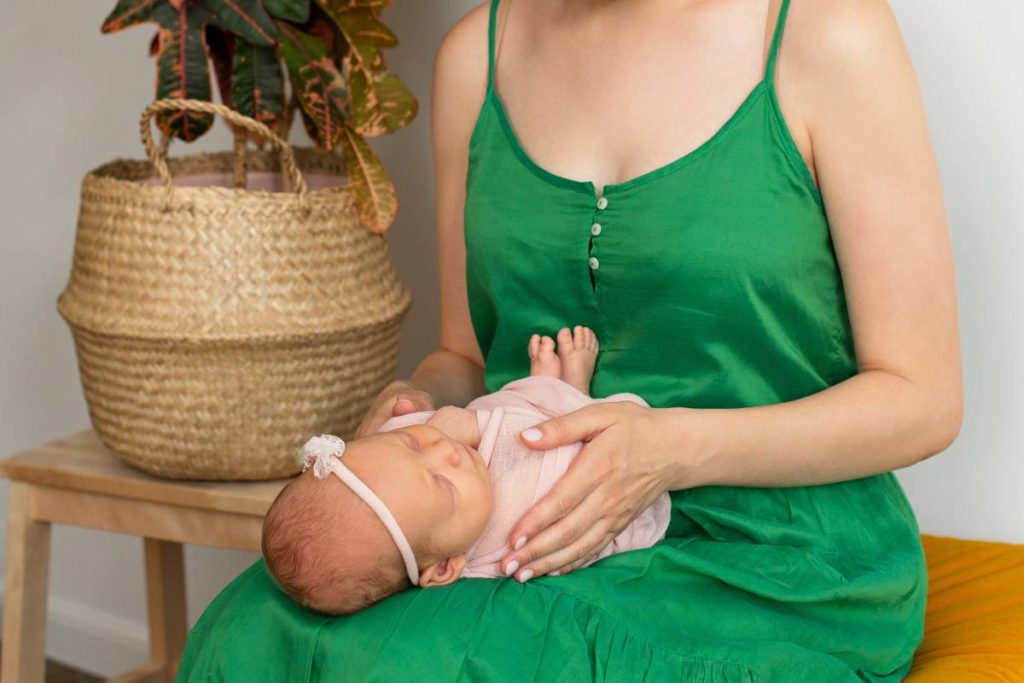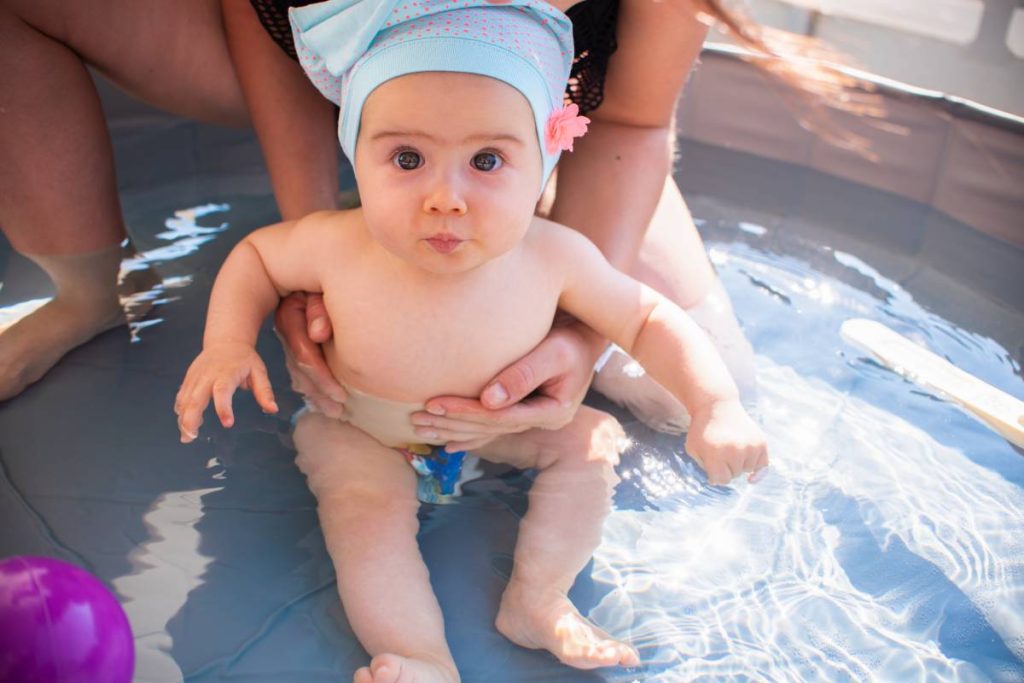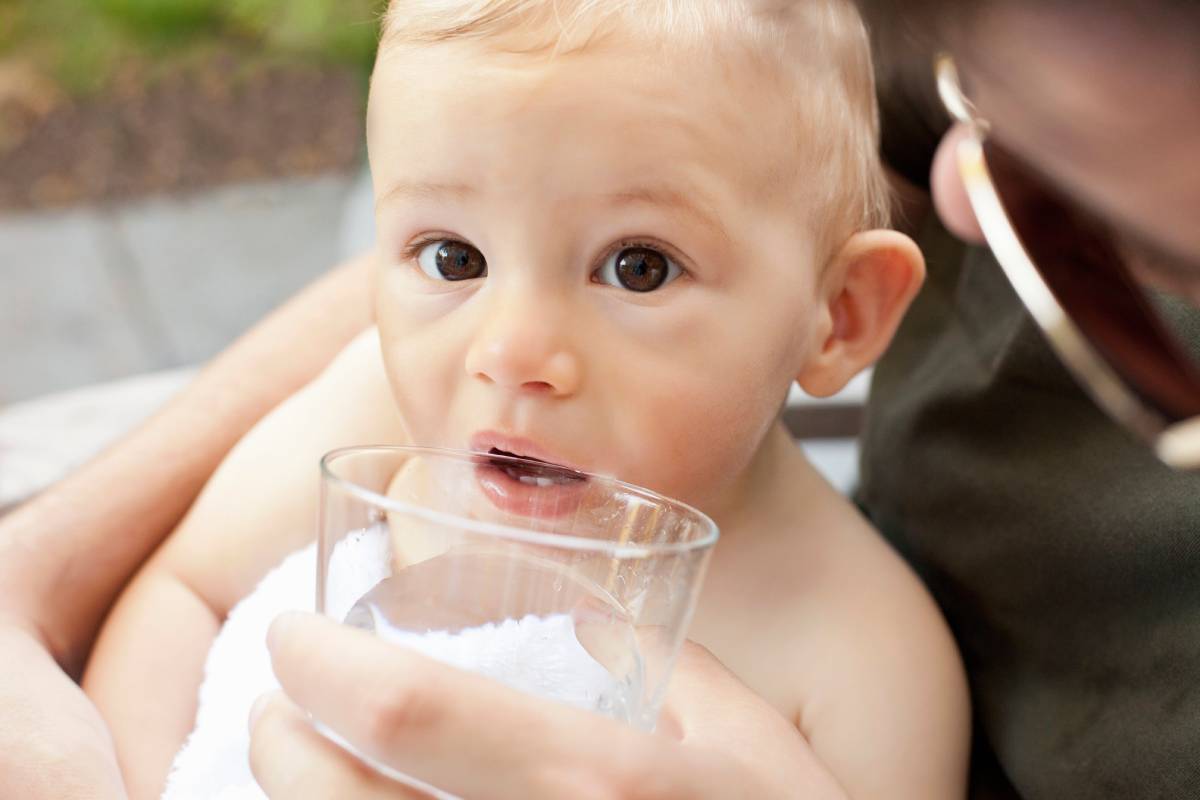Water is vital for our bodies, especially for adults. Not drinking enough water can cause health problems. It’s important to drink water every day. But what about babies? Is it safe to give them filtered water?
Babies are different from adults. They have unique nutritional needs. So, can you give a 2-month-old baby filtered water? Experts suggest waiting until a baby is at least 6 months old before giving them water.
In the first 6 months of life, breast milk or formula provides enough water for babies. It’s best to breastfeed exclusively for the first 6 months. After that, you can start introducing solid foods while still breastfeeding until the baby is at least 12 months old.
Here are 4 reasons why babies cannot drink water before they are older than 6 months.
You might also like:
4 reasons why babies cannot drink water
Water intoxication
Water intoxication is a serious risk when giving babies water too early.
Yes, water can indeed become toxic, especially if consumed in large amounts. However, what’s considered “large” varies based on size and age. For instance, a healthy adult would need to drink several litres quickly to experience water intoxication. This can occur more commonly in situations where dehydration is followed by overcompensation, such as in athletes or soldiers.
When the kidneys receive more water than they can handle, the excess enters the bloodstream, diluting its fluid and reducing essential electrolytes like sodium. Excessive dilution increases the risk of hyponatremia, which means low sodium levels in the blood.
Baby kidneys are much smaller and less developed than adult kidneys, making them unable to process as much water at once. Therefore, even a moderate amount of water given to a baby under 6 months old in a short time can lead to hyponatremia. This condition can be extremely dangerous, potentially causing brain swelling and even death, especially since an infant’s brain is still developing and more susceptible to swelling compared to an adult’s brain.

Digestive system problem
Giving babies water too early can have negative effects on their digestion and development. Breast milk already contains about 88% water, providing all the fluids a baby needs. Introducing filtered water too soon can interfere with nutrient absorption from breast milk or formula. Since a baby’s stomach is small, giving them too much water can make them feel full and refuse to breastfeed, leading to decreased milk intake and potential bloating. Excess water intake can also cause babies to spit up milk.
For formula-fed babies, it’s okay to give small sips of water to rinse their mouths after eating, but pediatric experts recommend not exceeding 30ml of water a day. Diluting formula to save milk or prevent constipation can reduce the baby’s nutrient intake.
Giving babies too much water can lead to water intoxication, which can cause serious health issues like seizures or coma. Babies’ kidneys aren’t fully developed, so excessive water intake can dilute sodium levels in the body, leading to sodium deficiency and affecting brain function. Symptoms of water intoxication in babies include irritability, drowsiness, and changes in mental state.
Susceptibility to diseases
Children are more vulnerable to diseases. Even daily broth can pose risks if the water source isn’t clean. Filtering or boiling water might not completely remove pathogens. Since children’s immune systems are still developing, they’re more likely to get diarrhoea from unsanitary environments compared to adults. Breast milk provides the cleanest and most complete source of water for babies.
Breast milk also contains valuable antibodies that help babies fight off common illnesses in their first months. If a baby fills up on water instead of milk, they might not get enough of these antibodies. Introducing water to babies early can increase their risk of diarrhoea two to three times compared to exclusively breastfed babies.
Furthermore, newborns’ kidneys aren’t fully functional yet. Giving them too much water can strain their kidneys, potentially damaging them prematurely.

Effects on the mother
When babies are given filtered water too early, they may suckle less, which not only deprives them of vital nutrients but also affects the mother’s body. When a baby suckles, it triggers the release of the hormone oxytocin in the mother, which stimulates breast milk production. If the baby doesn’t finish the milk, this stimulation decreases, leading to reduced milk production.
Consequently, the baby doesn’t receive enough breast milk, leading to a lack of nutrients. This often prompts mothers to switch to formula milk, further decreasing breastfeeding. As a result, milk production decreases even more, potentially leading to a loss of milk supply. This creates a cycle that’s hard to break, leaving the child undernourished and the mother feeling exhausted and stressed about breastfeeding.
How to give water to babies under 6 months old:
For the safety of your baby, it’s important not to give them filtered water. Avoid giving them too much watered-down formula or electrolyte solutions. However, if your baby is constipated or it’s very hot, you can offer them a small amount of water, around 30-60ml at a time.
But when can you start giving your baby more water? Around 6-8 months old, when they start eating solid foods, you can offer them a few sips of water between meals. However, don’t rush to replace breast milk or formula too soon. Breast milk or formula should still be their main source of nutrition until at least 12 months old.

It’s crucial to meet your newborn’s nutritional needs and ensure safety and hygiene. There’s no need to introduce water too early because breast milk or complete formula is the best drink for babies, especially those under 6 months old. This recommendation is supported by the World Health Organization (WHO) and nutrition experts.
If your baby has trouble breastfeeding or isn’t getting enough breast milk, consult your doctor for guidance on providing the right nutrition and possibly adjusting the formula to meet their needs.
Consult your doctor
If you’re unsure about your baby’s hydration or when to introduce water, talk to your paediatrician. Depending on factors like premature birth or specific health conditions, the timing for giving water may differ.
Additionally, if your baby displays any of these signs of water intoxication, seek medical help promptly:
- Excessive crying that can’t be comforted
- Vomiting
- Lethargy
- Seizures
- Tremors
Thankfully, most parents are already aware, either through advice from their paediatrician or by word of mouth, that giving water to young babies isn’t recommended. Understanding the reasons behind this guideline adds to your knowledge.

